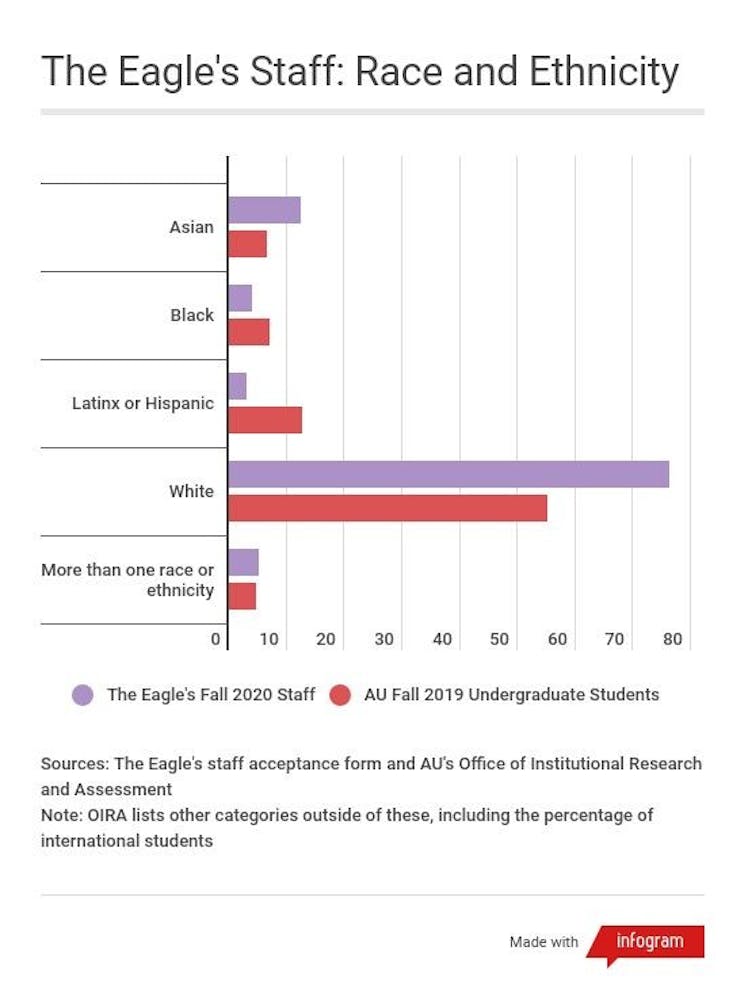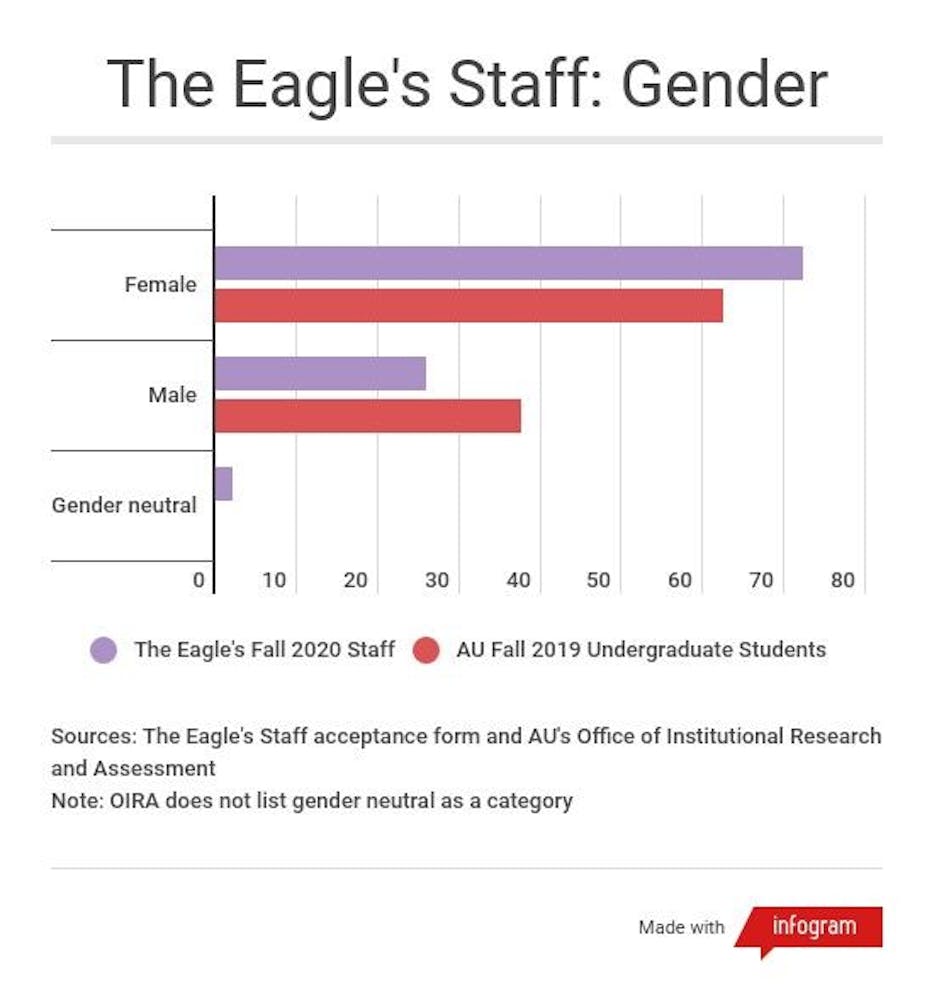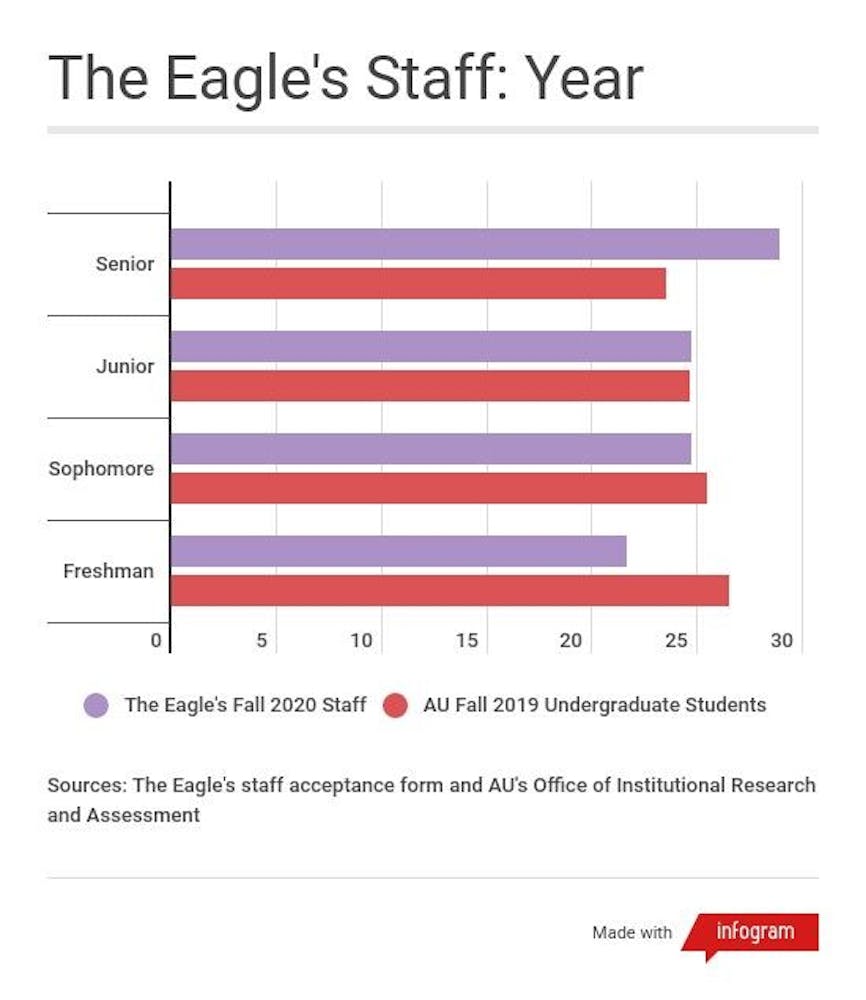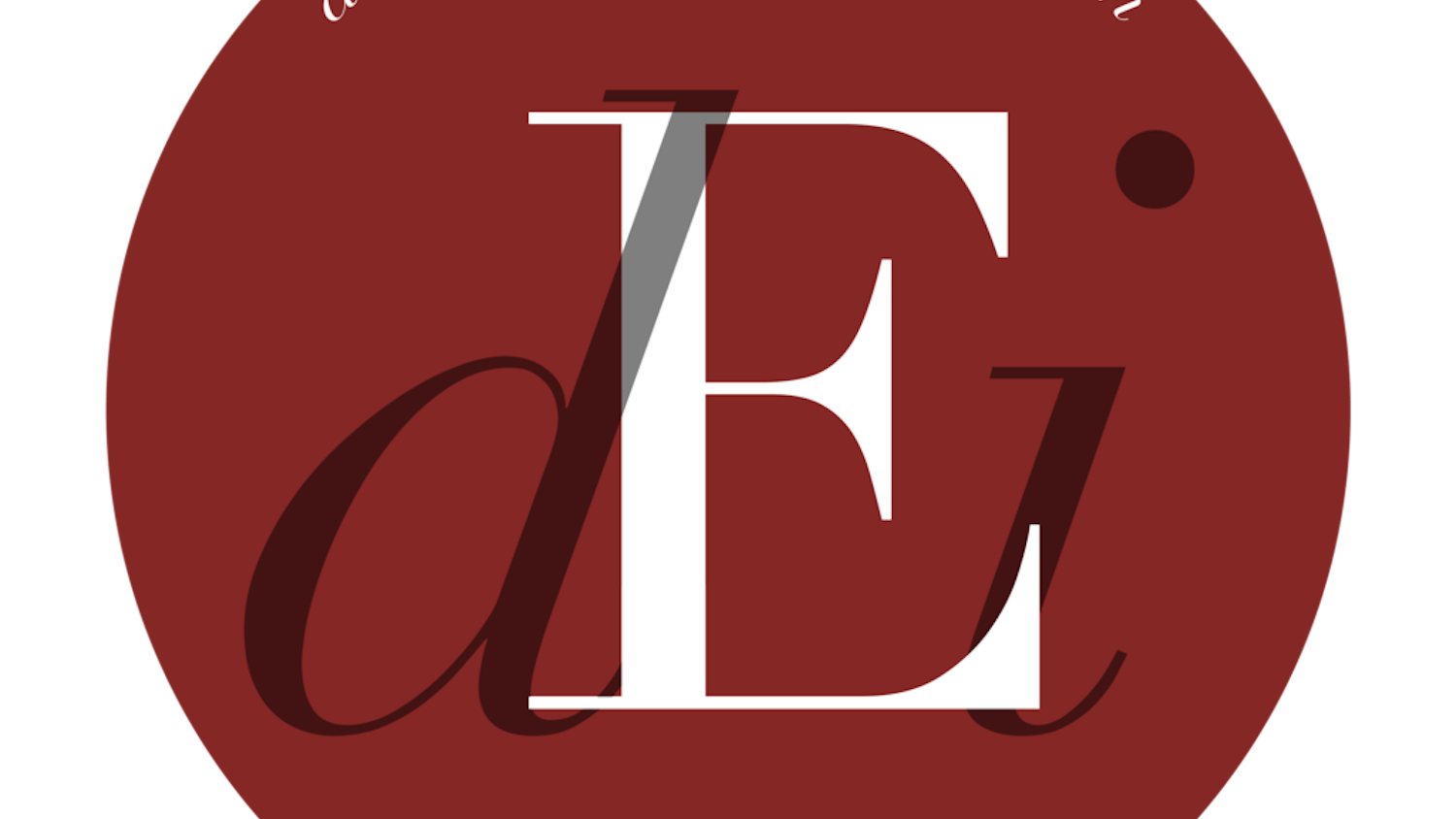We recognize and regret the mistakes we have made, and we know that actions speak louder than words. We must progress forward. Here is how The Eagle is committed to improving the diversity, equity and inclusion of both our staff and coverage:
- We have strengthened the work of our Diversity, Equity and Inclusion group to ensure that The Eagle more accurately reflects the University community. The group meets bimonthly and will publish bimonthly updates.
- We have reviewed and updated our style sheet so that the language used in our reporting is more inclusive. Recognizing that the LGBTQ acronym has its limitations, we now refer to the community as LGBTQ+.
- Our summer staff members attended an implicit bias training to learn and discuss how people’s backgrounds and experiences shape how they view the world. We have participated in a staff member-led workshop on reporting on different races, ethnicities, genders and sexual orientations. Other staff members led a workshop on covering protests fairly and accurately when details are often limited.
- We have changed the way we recruit. In addition to reaching out to students at recruiting events, and through student groups and professors, we are emphasizing contacting individuals we think might be interested in joining our staff directly.
- We have implemented a buddy system between our new and existing staff members to foster a unified and inclusive community. This is one way that Eagle staffers can meet and connect, despite physical distance.
Lastly, we have started to track the diversity of our staff at the beginning of each semester. Only the editor-in-chief and online managing editor have access to individual responses. However, the aggregate data is openly shared here.
There are more people of color on staff now than there were in the summer; however, there are also more people on staff in general. The percentage of POC on staff is only slightly higher now than it was in the summer. We have a lot of work to do.
Going forward, our Diversity, Equity and Inclusion group is going to look at how our next survey can provide more data about our makeup. We plan to continue tracking such data because doing so is impactful: A more diverse staff will undoubtedly lead to more diverse and representative coverage.
Among many other things, we are considering measuring our staff’s socioeconomic status, nationality, first language and sexual orientation. We understand that measuring such personal data comes with great responsibility, and we will ensure that no one on our staff feels pressured into checking a box and that individual data remains private.
We count on you to read our stories and to hold us accountable when we make mistakes in our coverage. Now that we are transparent about our staff’s diversity, it is another metric we want you to hold us accountable for.
Sophie Austin was responsible for the data visualization in this report.






